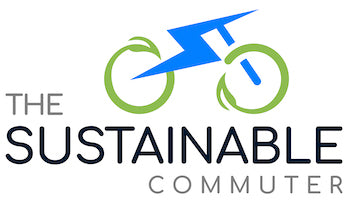
How Long Does it Take to Charge Electric Vehicles?
Share
How Long Does It Take to Charge an Electric Vehicle?
Electric vehicles (EVs) are becoming increasingly popular as a sustainable mode of transportation. With their zero-emission capabilities and lower operating costs compared to traditional combustion engine vehicles, more and more people are making the switch to electric. However, one question that often comes up is: How long does it take to charge an electric vehicle?
Factors that Affect Charging Time
The time it takes to charge an electric vehicle depends on several factors. These include the battery capacity of the EV, the power output of the charging station, the type of charger being used, and the current battery level of the vehicle.
Battery Capacity
The battery capacity of an electric vehicle determines how much energy it can store. The larger the battery capacity, the longer it will take to charge. For example, a vehicle with a 40 kWh battery will take longer to charge than one with a 20 kWh battery.
Charging Station Power Output
The power output of the charging station also affects charging time. Charging stations can vary in power output, with some offering slower charging speeds and others offering faster charging speeds. The higher the power output, the faster the vehicle will charge.
Type of Charger Used
There are different types of chargers available for electric vehicles. These include Level 1 chargers, Level 2 chargers, and DC fast chargers. Each type of charger has different charging speeds, with Level 1 chargers being the slowest and DC fast chargers being the fastest.
Current Battery Level
The current battery level of the vehicle also plays a role in charging time. If the battery is already partially charged, it will take less time to reach a full charge compared to a completely empty battery.
Types of EV Chargers
Level 1 Chargers
Level 1 chargers are the most basic type of charger and are typically included with the purchase of an electric vehicle. They are designed to be plugged into a standard household outlet and provide a slow charging speed. Level 1 chargers typically take around 8 to 12 hours to fully charge an electric vehicle.
Level 2 Chargers
Level 2 chargers are faster than Level 1 chargers and require a dedicated charging station to be installed. These chargers can provide charging speeds of around 20 to 60 miles of range per hour of charging. Level 2 chargers typically take around 4 to 8 hours to fully charge an electric vehicle.
DC Fast Chargers
DC fast chargers, also known as Level 3 chargers, are the fastest type of charger available for electric vehicles. These chargers can provide charging speeds of around 60 to 80 miles of range in just 20 minutes of charging. DC fast chargers are typically found at public charging stations and are ideal for long-distance travel.
Benefits of Faster Charging Times
Faster charging times offer several benefits for electric vehicle owners and the overall adoption of electric transportation.
Planning and Convenience
With faster charging times, electric vehicle owners have more flexibility in planning their trips and can rely on public charging stations for quick top-ups. This eliminates the need to wait for extended periods at a charging station, making electric vehicles more convenient for everyday use.
Reduced Emissions
Faster charging times also contribute to reduced emissions. When electric vehicle owners can charge their vehicles quickly, they are more likely to choose electric transportation over traditional combustion engine vehicles. This shift towards electric vehicles helps to reduce greenhouse gas emissions and improve air quality.
Charging Infrastructure
Faster charging times also drive the development of charging infrastructure. As more people adopt electric vehicles, there is a growing demand for charging stations. Faster charging times encourage the installation of more charging stations, making it easier for electric vehicle owners to find a charging point when needed.
Solutions for Faster Charging Times
Several companies and organizations are working towards improving charging times for electric vehicles.
Battery Technology Innovations from Tesla Inc.
Tesla Inc. is one of the leading companies in the electric vehicle industry, and they have made significant advancements in battery technology. Their Supercharger network allows Tesla owners to charge their vehicles at high speeds, providing up to 170 miles of range in just 30 minutes of charging. Tesla's ongoing research and development efforts continue to push the boundaries of charging technology.
Smart Charging from ChargePoint
ChargePoint is a company that specializes in providing charging solutions for electric vehicles. They offer smart charging stations that can communicate with the vehicle and optimize charging speeds based on factors such as battery capacity and current energy demand. This smart charging technology helps to reduce charging times and improve overall efficiency.
Solar-Powered EV Charging from SunPower
SunPower is a sustainable energy company that offers solar-powered charging solutions for electric vehicles. Their solar carports and charging stations harness the power of the sun to provide clean and renewable energy for charging electric vehicles. By utilizing solar power, SunPower's charging solutions can reduce charging times while minimizing environmental impact.
Conclusion
The time it takes to charge an electric vehicle depends on several factors, including battery capacity, charging station power output, type of charger used, and current battery level. Faster charging times offer numerous benefits, including increased convenience, reduced emissions, and the development of charging infrastructure. Companies like Tesla, ChargePoint, and SunPower are working on innovative solutions to improve charging times and accelerate the adoption of electric vehicles.
